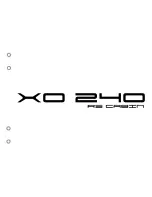
1-17
130 Super Sport
Section 1 • Safety
R
Hitting an object in or under the water or
boating in dangerous currents can cause serious
injury or death to occupants in the boat.
You must know where the hazards are and
avoid them. In uncharted waters, boat very
slowly and post a lookout.
If an object is struck or if you run aground:
• Shut the engine OFF
• Check the hull for damage
• Check the propeller(s) for damage
• If aground, consider the bottom
grade before moving off, (damage
to the hull and propeller(s) could be
worsened).
• Determine the tides and whether it
will help or hinder you from the
grounding.
• Do not have anyone other than a
trained and competent service tow
your boat.
!
WARNING
Environmental Considerations
Fuel & Oil Spillage
Regulations prohibit discharging fuel or oily waste
in navigable waters. Discharge is defi ned as any
action which causes a fi lm, sheen or discoloration
on the water surface, or causes a sludge or emulsion
beneath the water surface. A common violation is
Excessive Noise
Many areas regulate noise limits. Even if there are no
laws, courtesy demands that boats operate quietly.
Wake / Wash
Power boat wakes can endanger people and vessels.
Each power boat operator is responsible for injury
or damage caused by the boat’s wake. Be especially
careful in confi ned areas such as channels or marinas.
Observe “no wake” warnings.
SPEED HAZARD - Watch your wake. It might
capsize a smaller craft. You are responsible
for damage caused by your wake.
!
WARNING
Reduce speed in congested waterway. Be
alert for No Wake markers.
!
WARNING
bilge discharge. Use rags or sponges to soak up fuel
or oily waste, then dispose of it properly ashore.
If there is much fuel or oil in the bilge, contact a
knowledgeable marine service to remove it. Never
pump contaminated bilge overboard. Help protect
your waters.
















































